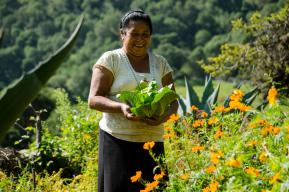News
Gorillas test positive to COVID-19: what it means for Great Apes

On 11 January 2020, news came that gorillas at the San Diego Safari Zoo Park (California, USA) tested positive for COVID-19. This is the first case of COVID-19 detected in these species. Two sick individuals were spotted after the appearance of symptoms (congestion, runny nose, lethargy). The feces of the troop (8 individuals in total) were tested and 3 were positive. Gorillas are social beings and the troop is organised around a silverback, so it is likely that all 8 members were exposed to the virus and therefore they were not isolated from each other.
In order to avoid transmission of COVID-19 to the animals, the park had put in place strict protection measures (full protection for the staff in charge of the animals) and was closed to the public since early December 2020. Nevertheless, the discovery of the disease in these gorillas is a reminder of the importance of respecting distancing, especially for individuals still living in the wild who may encounter the disease not only through contact with humans but also through contact with waste left behind by humans in their habitat (bottles, half-consumed organic waste, etc.). In order to raise awareness on this subject, UNESCO, together with the Chimpanzee Project of Sebitoli, had prepared advisory posters for professionals and communities.

This is the first case of COVID-19 detected in a great ape in the world. It is therefore, to date, impossible to determine how the disease will evolve in these individuals. When SARS-COV-2 emerged, the International Union for Conservation of Nature (IUCN)'s Wildlife Health Specialist Group and the Primate Specialist Group warned of the possible effects of the virus on great apes, who are particularly susceptible to respiratory diseases. However, in 2016-2017, chimpanzees in the mixed site of Taï in Côte d'Ivoire (Biosphere Reserve and World Heritage site) had been infected with the coronavirus OC43 and had only developed mild symptoms. Primatologists around the world are therefore closely monitoring the disease in the infected San Diego gorillas.
UNESCO remains at the side of the managers of biosphere reserves and world heritage sites and its network of specialists to monitor the situation in the 36 sites designated by UNESCO and around the world.








